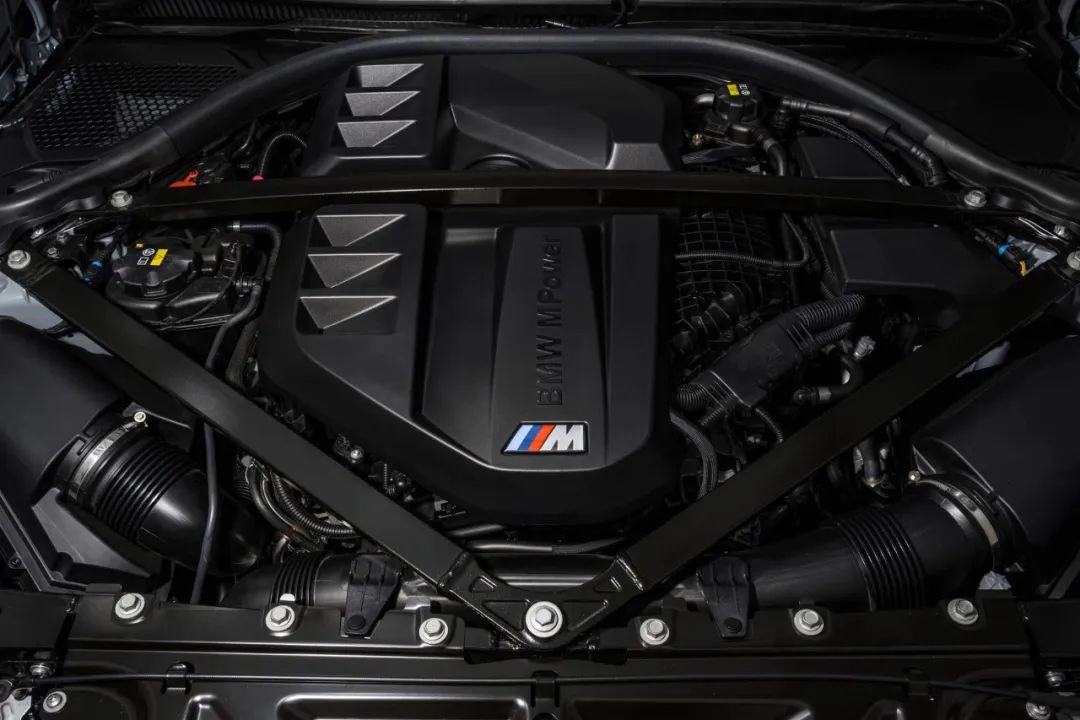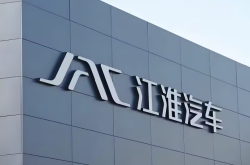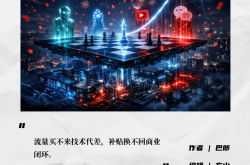Car Giants Reconsider Full Electrification Push?
![]() 07/25 2025
07/25 2025
![]() 639
639
The journey towards full electrification proves challenging.
Some foreign automakers are now backing away from the "full electrification" mantra.
"The internal combustion engine is our cornerstone," Klaus von Moltke, Senior Vice President of Engine Production at BMW Group, bluntly stated in a recent interview. He emphasized that in this transitional phase, internal combustion engine technology remains a crucial source of stable cash flow and financial support.

Image source: BMW
Notably, Audi CEO Markus Duesmann also recently confirmed in an interview with foreign media that the previous management's plan to "cease the development and sales of internal combustion engine vehicles by 2033" has been withdrawn. Duesmann clarified that Audi will not set a definitive end date for now.
Prior to this, Mercedes-Benz, Volvo, and several super-luxury auto brands have announced adjustments to their electrification plans.
Foreign brands' hesitation towards "fully promoting electrification" is not a rejection of the electrification trend but a strategic adjustment based on various factors, including market demand, technological development, and the company's capabilities. For most automakers, the current electrification business still struggles to achieve profitability. They aim to ensure a smooth transition, mitigate transformation risks, and secure more time and resources for the R&D and application of electrification technology by retaining and optimizing internal combustion engine technology during the electrification shift.
Car giants reluctant to bid farewell to internal combustion engines
Extending the lifespan of internal combustion engines has become a common strategy for many luxury auto brands.
Audi once had a clear electrification roadmap: it planned to cease internal combustion engine technology development by 2026, stop launching new fuel vehicle models after 2026, and phase out fuel vehicles by 2033. However, this plan has quietly been shelved. "Audi will launch a new series of internal combustion engines and plug-in hybrid vehicles from 2024 to 2026, providing us with more flexibility for the next decade. We will then reassess the market before making a decision," Duesmann said.
Mercedes-Benz's strategy has also shifted. In 2021, it announced plans to achieve full electrification in major markets by 2030. However, in February 2024, Mercedes-Benz announced that it would postpone its goal of electric vehicle sales accounting for 50% of total sales by 2025 and would continue to update its internal combustion engine vehicle lineup over the next decade. "The Group will maintain strategic focus, tactical flexibility, and take necessary steps to continue promoting the electrification transformation," admitted Ola Kaellenius, Chairman of the Board of Directors of Daimler AG, acknowledging that the company is "adjusting its course" and deciding to retain internal combustion engine models for a longer period than initially planned.
Volvo has also revised its electrification goals. The company stated that it has abandoned the goal of selling only pure electric vehicles by 2030. Due to changes in market conditions and customer demand falling short of expectations, Volvo has adjusted its electrification targets to: by 2030, plug-in hybrid vehicles and pure battery vehicles will account for at least 90% of its sales. Simultaneously, the brand is accelerating cost reduction and resource integration. Following Volvo's announcement of global layoffs of 3,000 people, employees in China also received layoff notices, primarily affecting staff at the Shanghai Technology Research and Development Center, spanning engineering, R&D, supply chain management, and other positions. The severance pay is generally N+3 (N being the number of years of service) months' salary.
Porsche announced in July 2024 that it would abandon its previously set goal of electric vehicle sales accounting for 80% of new vehicle sales by 2030, deeming this target overly aggressive. In March of this year, Porsche announced that while the company still regards electrification as a core technology for the future, it would extend the transition period for electrification and continue to offer a product portfolio that includes internal combustion engines, pure electric, and hybrid powertrains.
Bentley's strategic adjustment has also garnered attention. Bentley Motors had announced plans to sell only plug-in hybrid or pure electric vehicles by 2026 and to fully transition to electrification by 2030. However, under the leadership of the new Chief Technology Officer Frank-Steffen Walliser, Bentley's electrification strategy has been revised. Dr. Frank-Steffen Walliser told China Newsweek, "Based on positive feedback from global customers for plug-in hybrid models, Bentley Motors has adjusted its business strategy. The recently announced 'Beyond100+' business strategy extends the lifecycle of Bentley's plug-in hybrid models from 2030 to 2035."
Chinese market faces downward pressure
It's worth noting that with the ongoing electrification push, foreign brands have generally experienced a decline in sales in the Chinese market.
As early as 2022, BMW's sales in the Chinese market were approximately 792,000 units, a year-on-year decrease of 6.4%. After a brief sales rebound in 2023, BMW's sales in China significantly declined by 13.4% to 714,500 units in 2024, making it the luxury brand with the largest decline among BBA. In the first half of 2025, BMW's sales in China were 317,900 units, a year-on-year decrease of 15.5%; sales in the second quarter were 162,700 units, a year-on-year decrease of 13.7%, continuing the downward trend.
"BMW is facing challenges from consumer sentiment and dealer networks in China, but this is a common problem in the industry, and BMW is actively planning to address it," said Nicolas Peter, BMW Group's Board Member responsible for Customer, Brand, and Sales Business, earlier.
Continuous sales fluctuations have made BMW more cautious in its approach to the pace of electrification transformation. After all, internal combustion engine models still generate substantial profits, which can support the R&D and investment in electrification technology. If the electrification push is too aggressive, leading to a significant decline in sales of internal combustion engine models while electric models fail to fill the market void promptly, the company will face immense operational pressure.
In fact, luxury brands are generally under pressure from declining sales in the Chinese market. Data shows that in the first half of 2025, Porsche sold 146,000 vehicles in the global market, a year-on-year decrease of 6%; among them, sales in the Chinese market decreased by 28% year-on-year. In its largest market, North America, sales increased by 10% year-on-year.
Regarding the poor performance in the Chinese market, Porsche CEO Oliver Blume stated at the 2024 financial report meeting that it was primarily due to the rapid changes in the Chinese market, and Porsche failed to keep pace with the shift in consumer demand in a timely manner. "Annual demand in the Chinese market has dropped significantly, and the situation is severe. China is undergoing structural changes, and the development of our electric vehicles is slower than expected a few years ago."
China becomes the "key battleground" for electrification
As the world's largest automotive market, China is also one of the fastest-growing markets for electrification. Its vast consumer base and comprehensive industrial chain significantly influence the strategic layout of global auto brands. If foreign brands wish to remain competitive in the era of electrification, they must closely monitor the needs and changes in the Chinese market.
In the Chinese market, foreign brands such as BMW and Audi continue to accelerate their transition towards electrification and intelligence, precisely aligning with the unique needs of the Chinese market through collaboration with local Chinese enterprises.
For instance, FAW-Audi New Energy is Audi's first venture in China dedicated to the production of pure electric vehicle models, with its Changchun factory commencing operations in December 2024. In 2019, Audi became the first luxury auto brand to partner with Huawei, pioneering the integration of customized Huawei Kunlun Intelligent Driving® technology through deep intelligence integration to create the industry's most advanced intelligent solutions for customers. The FAW Audi Q6L e-tron became the "first luxury brand + Huawei global vehicle." Meanwhile, Audi is also collaborating with SAIC to develop an intelligent digital platform tailored specifically for the Chinese market.
In terms of intelligence, Chinese market consumers have particularly high demands for functions such as intelligent driving and intelligent cabins. The partnership between Audi and Huawei is a typical example of foreign brands swiftly enhancing their vehicle intelligence levels through collaboration with Chinese technology enterprises. This cooperation model not only assists foreign brands in swiftly acquiring advanced intelligent technology but also enables them to better adapt to the competitive environment in the Chinese market, leveraging Chinese technology enterprises' understanding of the local market. Through this collaboration, foreign brands can combine globally leading automotive manufacturing technology with China's intelligent technology to launch products that better meet the needs of Chinese consumers and increase market share.
Furthermore, among super-luxury brands, although the overall progress of electrification has been delayed, their electrification process in the Chinese market remains the fastest. Dr. Frank-Steffen Walliser, Chairman and CEO of Bentley Motors, said, "The first all-electric Bentley model is expected to be introduced to the Chinese market in 2027. It will be a new, more compact SUV model, creating a new market segment."
Dr. Frank-Steffen Walliser also revealed that Bentley Motors' headquarters factory in Crewe, UK, is currently undertaking a ten-year investment totaling 3 billion euros. As one of the largest investments in the brand's history, Bentley Motors is fully committed to transforming this 85-year-old factory towards the production of pure electric vehicles.
It can be concluded that the Chinese market is a pivotal battleground for foreign brands' electrification transformation. They actively promote the transition towards electrification and intelligence by collaborating with local Chinese enterprises, increasing localized production and R&D investment, and launching products tailored to the needs of the Chinese market. Despite their adjusted stance towards internal combustion engines globally, the pace of electrification in the Chinese market remains steadfast.






